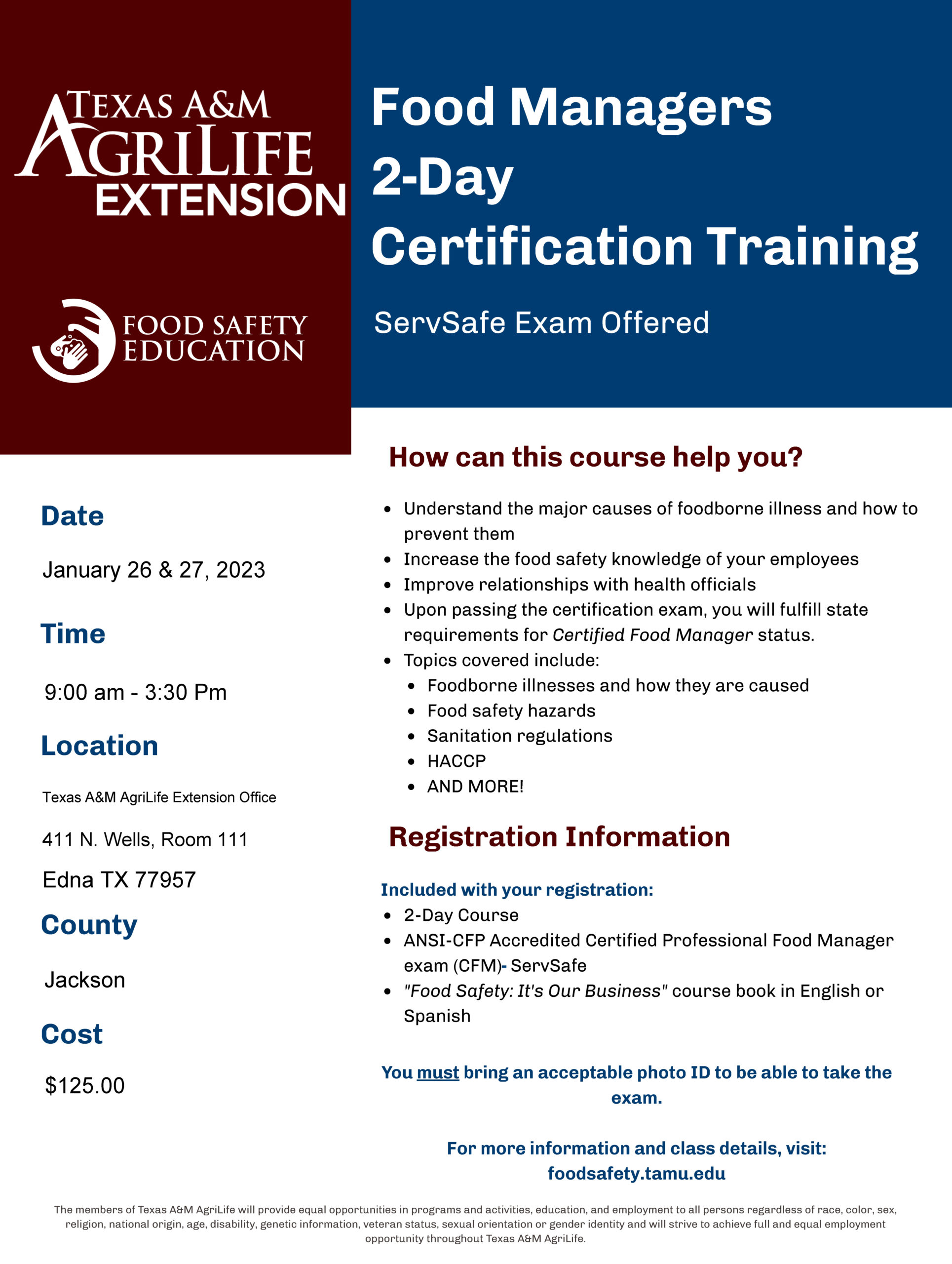ServSafe Food Manager Certification Research Study Tips for Examination Success
ServSafe Food Manager Certification Research Study Tips for Examination Success
Blog Article
Exactly How to Get Your Food Manager Qualification Quickly
Obtaining your Food Supervisor Certification effectively calls for a methodical technique, starting with a comprehensive understanding of the specific demands in your location. Picking a certified training program that straightens with your schedule is crucial, as is using ideal study materials to appropriately prepare for the exam. After completing your training, timely scheduling of the test can protect against unnecessary delays. Nonetheless, numerous people forget important elements that can additionally expedite this process, which may substantially influence their qualification trip. Checking out these subtleties can inevitably simplify your course to qualification.
Research Study Accreditation Requirements

Aspiring food supervisors need to first determine which certifications are acknowledged and requisite in their jurisdiction. This often involves assessing regional regulations and guidelines that dictate food safety and security techniques and the qualifications required for supervisory placements. In addition, understanding the eligibility requirements, such as previous experience in food solution or associated areas, is critical.

Choose a Reliable Training Program
Selecting the appropriate training program is a crucial step after recognizing the accreditation needs in your location. The efficiency of your training can significantly affect your understanding of food security concepts, which are vital for passing the certification test. Begin by researching programs accredited by credible organizations, such as the American National Requirement Institute (ANSI), as these usually stick to market standards.
Think about the training style that ideal fits your understanding style. Assess the curriculum to ensure it covers crucial subjects such as foodborne illnesses, cleanliness, and risk-free food taking care of techniques.
Verify that the program includes comprehensive materials and sources to assist in your discovering. By very carefully selecting a training program that aligns with your demands, you can improve your preparation for the food manager qualification examination.

Get Ready For the Test

Utilize research study products that align with the test's structure. Many companies use research guides and practice tests, which can be invaluable in assessing your understanding and preparedness. Participate in active understanding strategies, such as flashcards or seminar, to improve retention of essential details.
Additionally, consider attending testimonial programs or workshops that offer comprehensive protection of crucial topics. These sessions often consist of expert insights that can clarify complicated ideas and reinforce your expertise.
Schedule Your Examination Day
Picking the correct time to arrange your exam date is an essential action in the accreditation process. Selecting an ideal date permits you to designate sufficient time for preparation while stabilizing other individual and professional commitments. Consider your present work and any type of approaching occasions that might sidetrack you from focused research.
Objective to arrange your examination after finishing your preparatory coursework and method examinations. This ensures you feel great in your understanding and abilities. In addition, consider scheduling your exam for a day when you are generally at your most sharp and concentrated, as mental clearness can dramatically influence efficiency.
It is additionally a the original source good idea to check the availability of test slots in your area, as some places may have limited openings. Scheduling your exam well in development can help you protect a preferred time and place. Be mindful of the certification's expiry policies, as picking a date too far in the future may lead to a gap in your expertise.
Inevitably, the goal is to discover a balance in between readiness and availability, guaranteeing you approach your exam with self-confidence and a strong structure of knowledge.
Maintain Your Accreditation
Keeping your qualification is important for making sure ongoing proficiency and conformity in food monitoring techniques. Qualification usually calls for important site revival every 3 to 5 years, relying on the providing company. To stay current, it is essential to recognize the details revival requirements of your certification body, as they may differ.
Continuing education and learning is a vital component of keeping your certification (Certified Food Manager Certification). Participating in workshops, seminars, or online programs associated with food health, safety, and management techniques not just enhances your understanding but might additionally fulfill renewal needs. In addition, numerous certification companies use sources and training sessions to help you stay educated regarding the newest market requirements and policies
Exercising good food monitoring within your office is just as important. On a regular basis using your expertise and abilities strengthens your skills and may give documents that shows adherence to ideal techniques.
Lastly, monitor your qualification's expiration day and any kind of needed paperwork for the revival procedure - ServSafe Food Manager Certification. Proactively handling these aspects will make sure that you keep your certification without disturbance, allowing you to continue providing reliable and safe food monitoring in your specialist environment
Final Thought
Accomplishing Food Manager Certification effectively requires a calculated approach that consists of complete research of local demands, option of a proper training program, and persistent prep work for the assessment. Timely scheduling of the examination following completion of training is important to avoid unneeded hold-ups. In addition, staying informed regarding revival demands makes certain the upkeep of certification standing. By sticking to these laid out steps, individuals can successfully browse the qualification process and boost their specialist qualifications in food monitoring.
The course to obtaining food manager qualification is visit the website not uniform; it varies dramatically depending on local laws and the details qualification program selected. The effectiveness of your training can significantly influence your understanding of food safety principles, which are essential for passing the certification test. By very carefully selecting a training program that straightens with your demands, you can boost your preparation for the food manager certification exam.
Detailed prep work is crucial for success on the food manager certification examination.Achieving Food Supervisor Certification effectively demands a strategic approach that consists of complete research study of local requirements, choice of a proper training program, and diligent preparation for the assessment.
Report this page